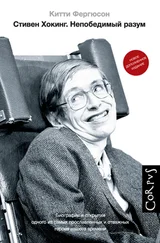Fresco D., Rytwinski N., Craighead L. Explanatory Flexibility and Negative Life Events Interact to Predict Depression Symptoms // Journal of Social and Clinical Psychology, 2007. Vol. 26. P. 595–608.
Fresco D. et al. Self-Administered Optimism Training: Mechanisms of Change in a Minimally Supervised Psychoeducational Intervention // Journal of Cognitive Psychotherapy, 2009. Vol. 23. P. 350–367.
Miserandino M. Attributional Retraining as a Method of Improving Athletic Performance // Journal of Sport Behavior, 1998. Vol. 21. P. 286–297.
Le Foll D., Rascle O., Higgens N. C. Attributional Feedback-Induced Changes in Functional and Dysfunctional Attributions, Expectations of Success, Hopefulness, and Short-Term Persistence in a Novel Sport // Psychology of Sport and Exercise, 2008. Vol. 9. P. 77–101.
Le Foll D., Rascle O., Higgens N. C. Attributional Feedback-Induced Changes in Functional and Dysfunctional Attributions, Expectations of Success, Hopefulness, and Short-Term Persistence in a Novel Sport // Psychology of Sport and Exercise, 2008. Vol. 9. P. 77–101.
Douglas D., Anisman H. Helplessness or Expectation Incongruency: Effects of Aversive Stimulation on Subsequent Performance // Journal of Experimental Psychology, 1975. Vol. 1. P. 411–417.
Quinn J. M. et al. Can’t Control Yourself? Monitor Those Bad Habits // Personality and Social Psychology Bulletin, 2010. Vol. 36. P. 499–511.
Дахигг Ч. Сила привычки. Почему мы живем и работаем именно так, а не иначе. М.: Карьера Пресс, 2012.
Дахигг Ч. Сила привычки. Почему мы живем и работаем именно так, а не иначе. М.: Карьера Пресс, 2012.
Smith D. et al. Happily Hopeless: Adaptation to a Permanent, but Not to a Temporary, Disability // Health Psychology, 2009. Vol. 28. P. 787–791.
Daishonin N. Letter from Sado // The Writings of Nichiren Daishonin, Vol. 1. Japan: Soka Gakkai, 1999. P. 302.
Stiegelis H. et al. Cognitive Adaptation: a Comparison of Cancer Patients and Healthy References // British Journal of Health Psychology, 2003. Vol. 8. P. 303–318.
Sharot T., Shiner T., Dolan R. Experience and Choice Shape Expected Aversive Outcomes // The Journal of Neuroscience, 2010. Vol. 30. P. 9209–9215.
Wilson T. et al. Preferences as Expectation-Driven Inferences: Effects of Affective Expectations on Affective Experiences // Journal of Personality and Social Psychology, 1989. Vol. 56. P. 519–530.
Geers A., Lassiter G. D. Effects of Affective Expectations on Affective Experience: The Moderating Role of Optimism-Pessimism // Personality and Social Psychology Bulletin, 2002. Vol. 28. P. 1026–1039.
Suls J., Wan C. Effects of Sensory and Procedural on Coping with Stressful Medical Procedures and Pain: a Meta-Analysis // Journal of Consulting and Clinical Psychology, 1989. Vol. 57. P. 372–379.
Douglas D., Anisman H. Helplessness or Expectation Incongruency: Effects of Aversive Stimulation on Subsequent Performance // Journal of Experimental Psychology, 1975. Vol. 1. P. 411–417.
Douglas D., Anisman H. Helplessness or Expectation Incongruency: Effects of Aversive Stimulation on Subsequent Performance // Journal of Experimental Psychology, 1975. Vol. 1. P. 411–417.
Daishonin N. The Opening of the Eyes, Part I // The Writings of Nichiren Daishonin, Vol. 1. Japan: Soka Gakkai, 1999. P. 279.
Kowalski R. Whining, Griping, and Complaining: Positivity in the Negativity // Journal of Clinical Psychology, 2002. Vol. 58. P. 1023–1035.
Brunstein J., Dangelmayer G., Schultheiss O. Personal Goals and Social Support in Close Relationships: Effects on Relationship Mood and Marital Satisfaction // Journal of Personality and Social Psychology, 1996. Vol. 71. P. 1006–1019.
Darley J., Latane B. Bystander Intervention in Emergencies: Diffusion of Responsibility // Journal of Personality and Social Psychology, 1968. Vol. 8. P. 377–383.
Fitzsimons G., Finkel E. Outsourcing Self-Regulation // Psychological Science, 2011. Vol. 22. P. 369–375.
Davison G., Valens S. Maintenance of Self-Attributed and Drug-Attributed Behavior Change // Journal of Personality and Social Psychology, 1969. Vol. 11. P. 25–33.
Lambert J., Difede J., Contrada R. The Relationship of Attribution of Responsibility to Acute Stress Disorder Among Hospitalized Burn Patients // The Journal of Nervous and Mental Disease, 2004. Vol. 192. P. 304–312.
Tennen H., Affleck G. Blaming Others for Threatening Events // Psychological Bulletin, 1990. Vol. 108. P. 209–232.
Langer E., Rodin J. The Effects of Choice and Enhanced Personal Responsibility for the Aged: a Field Experiment in an Institutional Setting // Journal of Personality and Social Psychology, 1976. Vol. 34. P. 191–198.
Rodin J., Langer E. Long-Term Effects of a Control-Relevant Intervention with the Institutionalized Aged // Journal of Personality and Social Psychology, 1977. Vol. 35. P. 897–902.
Rachman S., De Silva P. Abnormal and Normal Obsessions // Behaviour Research and Therapy, 1978. Vol. 16. P. 233–248.
Salkovskis P. et al. Responsibility Attitudes and Interpretations Are Characteristic of Obsessive Compulsive Disorder // Behaviour Research and Therapy, 2000. Vol. 38. P. 347–372.
Hauser M. et al. a Dissociation Between Moral Judgments and Justifications // Mind and Language, 2007. Vol. 22. P. 1–21.
Gray K. Moral Transformation: Good and Evil Turn the Weak into the Mighty // Social Psychology and Personality Science, 2010. Vol. 1. P. 253–258.
Gray K. Moral Transformation: Good and Evil Turn the Weak into the Mighty // Social Psychology and Personality Science, 2010. Vol. 1. P. 253–258.
Hauser M. et al. a Dissociation Between Moral Judgments and Justifications // Mind and Language, 2007. Vol. 22. P. 1–21.
Haidt J. The Emotional Dog and Its Rational Tail: a Social Intuitionist Approach to Moral Judgment // Psychological Review, 2001. P. 108. P. 814–834.
LoBue V. et al. When Getting Something Good Is Bad: Even Three-Year-Olds React to Inequality // Social Development, 2011. Vol. 20. P. 154–170.
Gray K. Moral Transformation: Good and Evil Turn the Weak into the Mighty // Social Psychology and Personality Science, 2010. Vol. 1. P. 253–258.
Gray K., Wegner D. Moral Typecasting: Divergent Perceptions of Moral Agents and Moral Patients // Journal of Personality and Social Psychology, 2009. Vol. 96. P. 505–520.
Читать дальше
Конец ознакомительного отрывка
Купить книгу





![Рейчел Херц - Почему мы едим то, что едим [Наука о том, как наш мозг диктует нам, что есть]](/books/390411/rejchel-herc-pochemu-my-edim-to-chto-edim-nauka-o-t-thumb.webp)






